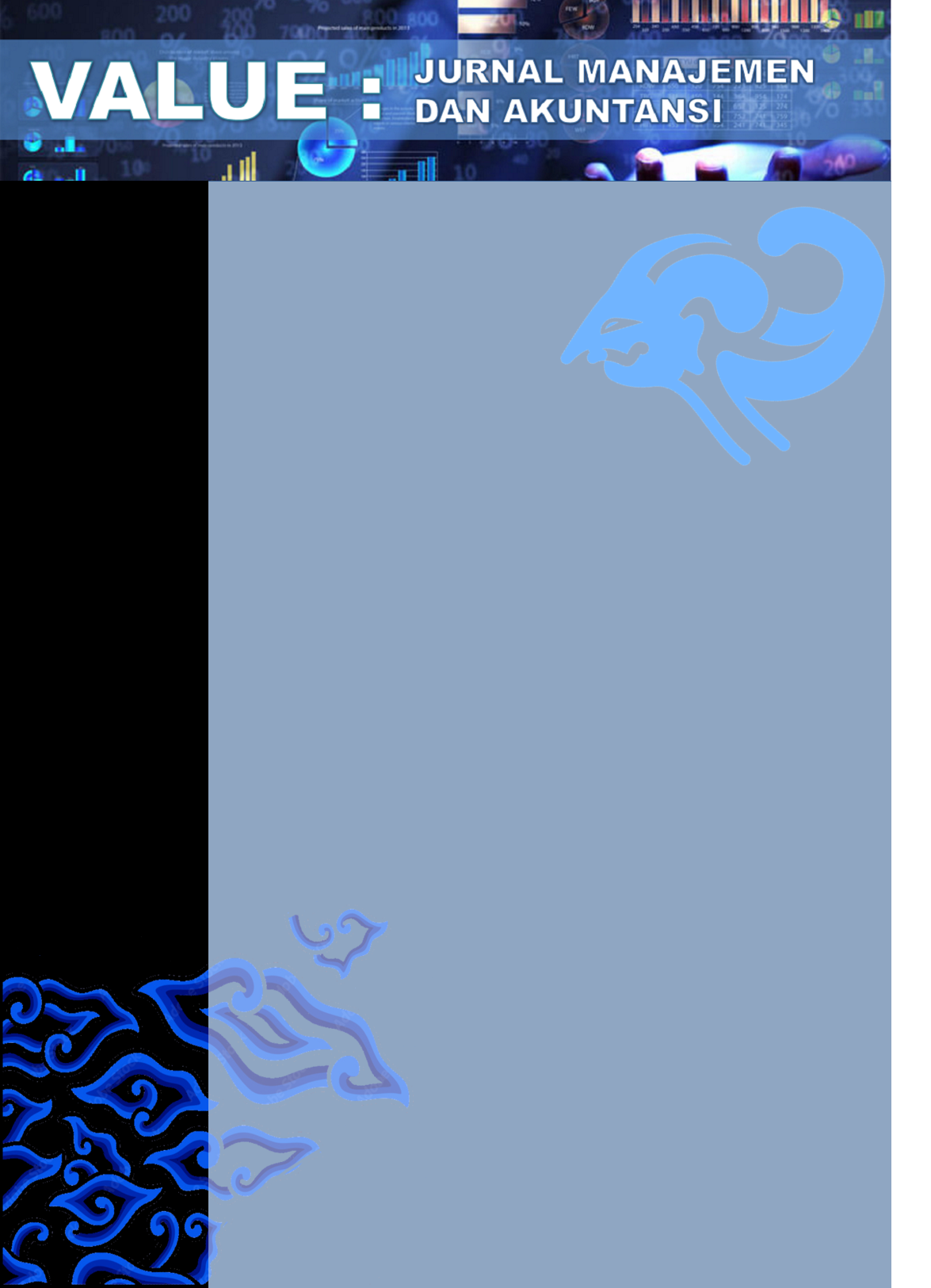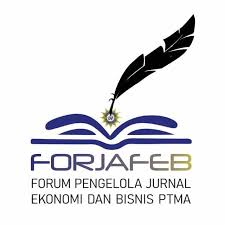Creativity And Performance Of Women Entrepreneurs: The Moderating Role Of Family Support
DOI:
https://doi.org/10.32534/jv.v19i2.5991Keywords:
Creativity, Women Entrepreneurs, SME Performance, Family SupportAbstract
Given the significant role these businesses play in economic development and the unique challenges faced by women entrepreneurs, the entrepreneurial performance of women in micro-, small-, and medium-sized enterprises (MSMEs). This study investigated the influence of expertise, creative thinking skills, and motivation on the performance of female entrepreneurs in MSMEs. Additionally, it examined the moderating effect of family support on these relationships. A quantitative approach was adopted, utilizing a survey methodology with a 5-point Likert scale questionnaire administered to 152 female entrepreneurs operating MSMEs. Data analysis was conducted using structural equation modeling techniques with SmartPLS software. The results indicate that expertise, creative thinking skills, and motivation positively affect the performance outcomes of women entrepreneurs. Furthermore, family support significantly moderated these relationships, strengthening the impact of expertise, creative thinking abilities, and motivation on entrepreneurial performance. This study contributes to the literature by providing novel insights into the role of family support in enhancing the relationship between creativity and entrepreneurial performance in women-owned MSMEs. These findings underscore the critical importance of fostering creativity, promoting motivation, and leveraging family support to improve women's entrepreneurial success in the MSME sector.
References
Abdul, O. E. (2018). Entrepreneurial skills and growth of Small and Medium Enterprise (SMEs): A comparative analysis of Nigerian entrepreneurs and Minority entrepreneurs in the UK. International Journal of Academic Research in Business and Social Sciences, 8(5), Pages 27-46. https://doi.org/10.6007/IJARBSS/v8-i5/4083
Adil, S., & Hamid, K. (2019). The Relationships between Leader Creativity Expectations, Intrinsic Motivation, and Creative Performance. SEISENSE Journal of Management, 2, 58–68. https://doi.org/10.33215/sjom.v2i2.123
Aisjah, S., Arsawan, I. W. E., & Suhartanto, D. (2023). Predicting SME’s business performance: Integrating stakeholder theory and performance based innovation model. Journal of Open Innovation: Technology, Market, and Complexity, 9(3), 100122. https://doi.org/10.1016/j.joitmc.2023.100122
Aisyah, E. N., Prajawati, M. I., & Setiani. (2023). Measuring Female Leadership Competencies of SMEs. Asian Journal of Economics, Business and Accounting, 23(9). https://doi.org/10.9734/ajeba/2023/v23i9962
Amabile, T. M. (1998). How to kill creativity. Harvard Business Review, 76 5, 76–87, 186.
Amabile, T. M., & Pratt, M. G. (2016). The dynamic componential model of creativity and innovation in organizations: Making progress, making meaning. Research in Organizational Behavior, 36, 157–183. https://doi.org/10.1016/j.riob.2016.10.001
Blais, C., St-Pierre, J., & Bergeron, H. (2023). Performance measurement in new product development projects: Findings from successful small and medium enterprises. International Journal of Project Management, 41(2), 102451. https://doi.org/10.1016/j.ijproman.2023.102451
Carr, J. C., & Sequeira, J. M. (2007). Prior family business exposure as intergenerational influence and entrepreneurial intent: A Theory of Planned Behavior approach. Journal of Business Research, 60(10), 1090–1098. https://doi.org/10.1016/j.jbusres.2006.12.016
Cesaroni, F. M., & Paoloni, P. (2016). Are family ties an opportunity or an obstacle for women entrepreneurs? Empirical evidence from Italy. Palgrave Communications, 2(1), Article 1. https://doi.org/10.1057/palcomms.2016.88
Chatterjee, I., Shepherd, D. A., & Wincent, J. (2022). Women’s entrepreneurship and well-being at the base of the pyramid. Journal of Business Venturing, 37(4), 106222. https://doi.org/10.1016/j.jbusvent.2022.106222
Clements, E., Stephan, U., Miozzo, M., Hellyer, P. J., Devonshire, J., Allesch-Tayalor, S., Williams, S., & Giampietro, V. (2021). Cognitive Neuroscience and Entrepreneurship: Cross-disciplinary review and future potential. Scite.Ai. https://doi.org/10.31234/osf.io/ayve7
Džananovi?, ?., & Tandir, N. (2020). Motivational and Limiting Factors for Female Entrepreneurship. Open Journal for Research in Economics, 3(1), 1–8. https://doi.org/10.32591/coas.ojre.0301.01001d
Ernst, R.-A., Gerken, M., Hack, A., & Hülsbeck, M. (2022). SMES’ reluctance to embrace corporate sustainability: The effect of stakeholder pressure on self-determination and the role of social proximity. Journal of Cleaner Production, 335, 130273. https://doi.org/10.1016/j.jclepro.2021.130273
Erum, H., Abid, G., Anwar, A., Ijaz, M. F., & Kee, D. M. H. (2021). My Family Stands Behind Me: Moderated Mediation Model of Family Support and Work Engagement. European Journal of Investigation in Health, Psychology and Education, 11(2), 321–333. https://doi.org/10.3390/ejihpe11020024
Fayokemi Eunice, A., & M. Epetimehin, F. (2020). Motivation of Women Entrepreneurs in Nigeria. Sumerianz Journal of Social Science, 312, 162–170. https://doi.org/10.47752/sjss.312.162.170
Feng, J., Ahmad, Z., & Zheng, W. (2023). Factors influencing women’s entrepreneurial success: A multi-analytical approach. Frontiers in Psychology, 13, 1099760. https://doi.org/10.3389/fpsyg.2022.1099760
Fisher, C., Ananth, P., & Caliskan, O. D. (2020). A Winding Road: Teresa Amabile and Creative Process Research. Creativity at Work. https://doi.org/10.1007/978-3-030-61311-2_4
Gao, H., Ou, Y., Zhang, Z., Ni, M., Zhou, X., & Liao, L. (2021). The Relationship Between Family Support and e-Learning Engagement in College Students: The Mediating Role of e-Learning Normative Consciousness and Behaviors and Self-Efficacy. Frontiers in Psychology, 12, 573779. https://doi.org/10.3389/fpsyg.2021.573779
Gralewski, J., & Jankowska, D. M. (2020). Do parenting styles matter? Perceived dimensions of parenting styles, creative abilities and creative self-beliefs in adolescents. Thinking Skills and Creativity, 38, 100709. https://doi.org/10.1016/j.tsc.2020.100709
Hair, J. F., Hult, G. T. M., Ringle, C. M., & Sarstedt, M. (2017). A Primer on Partial Least Squares Structural Equation Modeling (PLS-SEM), 2nd ed. SAGE Publications.
Huang, Y., Li, P., Wang, J., & Li, K. (2022). Innovativeness and entrepreneurial performance of female entrepreneurs. Journal of Innovation & Knowledge, 7(4), 100257. https://doi.org/10.1016/j.jik.2022.100257
Imjai, N., Aujirapongpan, S., & Yaacob, Z. (2024). Impact of logical thinking skills and digital literacy on Thailand’s generation Z accounting students’ internship effectiveness: Role of self-learning capability. International Journal of Educational Research Open, 6, 100329. https://doi.org/10.1016/j.ijedro.2024.100329
Iskandar, T. M., & Hassan, N. H. (2015). Board Quality of SMESs in Malaysia: The Governing Role of Family Ownership. Procedia Economics and Finance, 31, 611–617. https://doi.org/10.1016/S2212-5671(15)01148-X
Jiang, Y., Jiang, Z., & Chen, Z. (2024). Women entrepreneurship in China: A bibliometric literature review and future research agenda. Journal of Business Research, 179, 114688. https://doi.org/10.1016/j.jbusres.2024.114688
Journeault, M., Perron, A., & Vallières, L. (2021). The collaborative roles of stakeholders in supporting the adoption of sustainability in SMEs. Journal of Environmental Management, 287, 112349. https://doi.org/10.1016/j.jenvman.2021.112349
Kawai, N., & Sibunruang, H. (2023). Identifying success factors for female entrepreneurs using the AMO framework: Empirical evidence from Japan. European Management Journal, 41(4), 499–511. https://doi.org/10.1016/j.emj.2023.06.002
Kimathi, B. M. (2021). Effect Of Creativity On The Performance Of Small And Medium Enterprises In Kenya. Journal of International Business, Innovation and Strategic Management, 5(1), Article 1.
Kitole, F. A., & Genda, E. L. (2024). Empowering her drive: Unveiling the resilience and triumphs of women entrepreneurs in rural landscapes. Women’s Studies International Forum, 104, 102912. https://doi.org/10.1016/j.wsif.2024.102912
Koçak, O., Ak, N., Erdem, S. S., Sinan, M., Younis, M. Z., & Erdo?an, A. (2021). The Role of Family Influence and Academic Satisfaction on Career Decision-Making Self-Efficacy and Happiness. International Journal of Environmental Research and Public Health, 18(11), 5919. https://doi.org/10.3390/ijerph18115919
Kukkonen, T., & Bolden, B. (2022). Nurturing Creativity in the Visual Arts Classroom Understanding Teacher Strategies through Amabile’s Componential Theory. The Canadian Review of Art Education, 49(1). https://doi.org/10.26443/crae.v49i1.166
Kusa, R., Duda, J., & Suder, M. (2021). Explaining SME performance with fsQCA: The role of entrepreneurial orientation, entrepreneur motivation, and opportunity perception. Journal of Innovation & Knowledge, 6(4), 234–245. https://doi.org/10.1016/j.jik.2021.06.001
Leung, Y. K., Mukerjee, J., & Thurik, R. (2019). The role of family support in work-family balance and subjective well-being of SME owners. Journal of Small Business Management, 58(1). https://doi.org/10.1080/00472778.2019.1659675
?opatka, A. (2021). Entrepreneurial competencies of women ICT start-up. Procedia Computer Science, 192, 5122–5129. https://doi.org/10.1016/j.procs.2021.09.290
Mamabolo, A., & Lekoko, R. (2021). Entrepreneurial ecosystems created by woman entrepreneurs in Botswana. South African Journal of Business Management, 52(1). https://doi.org/10.4102/sajbm.v52i1.2228
Manzanera-Román, S., & Brändle, G. (2016). Abilities and skills as factors explaining the differences in women entrepreneurship. Suma de Negocios, 7(15), 38–46. https://doi.org/10.1016/j.sumneg.2016.02.001
Ndlela, S., Barnes, N., & Hoque, M. (2023). Determining the level of creative thinking skills of small and medium enterprises’ owners in South Africa. https://doi.org/10.33422/15th.meaconf.2023.03.005
Nguyen, P. N.-D., Mai, K. N., & Le, T.-H. (2023). Strategic perspectives, creativity, and financial performance in Vietnamese SMEs. Heliyon, 9(9), e20354. https://doi.org/10.1016/j.heliyon.2023.e20354
Nudurupati, S. S., Budhwar, P., Pappu, R. P., Chowdhury, S., Kondala, M., Chakraborty, A., & Ghosh, S. K. (2022). Transforming sustainability of Indian small and medium-sized enterprises through circular economy adoption. Journal of Business Research, 149, 250–269. https://doi.org/10.1016/j.jbusres.2022.05.036
Park, H., Kang, S., & Kim, S. (2023). A longitudinal study of the effect of individual and socio-cultural factors on students’ creativity. Frontiers in Psychology, 14, 1068554. https://doi.org/10.3389/fpsyg.2023.1068554
Priambodo, A. (2023). Determinants of TikTok Live Commerce Purchase Intention: Service Quality, Price, Trust, Customer Review, And Free Shipping | Jurnal Ekonomi, Bisnis & Entrepreneurship. https://jurnal.stiepas.ac.id/index.php/jebe/article/view/441
Priambodo, A., Sulaeman, M., Permana, I., & Sugiarto, I. (2024). Enhancing the Performance and Competitiveness of Women in MSMES Through Marketing, Capital, and Digital Literacy. Widya Cipta: Jurnal Sekretari Dan Manajemen, 8(1), Article 1. https://doi.org/10.31294/widyacipta.v8i1.16298
Purnomo, D., Pujianto, T., & Efendi, N. (2015). Unpad – Ibu Popon Collaboration; A Best Practice in Sustainable Assistance Model for Social Entrepreneurship in Agro-industrial Based SME’s. Agriculture and Agricultural Science Procedia, 3, 206–210. https://doi.org/10.1016/j.aaspro.2015.01.040
Rumanti, A. A., Rizana, A. F., & Achmad, F. (2023). Exploring the role of organizational creativity and open innovation in enhancing SMEs performance. Journal of Open Innovation: Technology, Market, and Complexity, 9(2), 100045. https://doi.org/10.1016/j.joitmc.2023.100045
Safi’i, A., Muttaqin, I., Sukino, Hamzah, N., Chotimah, C., Junaris, I., & Rifa’i, Muh. K. (2021). The effect of the adversity quotient on student performance, student learning autonomy and student achievement in the COVID-19 pandemic era: Evidence from Indonesia. Heliyon, 7(12), e08510. https://doi.org/10.1016/j.heliyon.2021.e08510
Sarango-Lalangui, P., Castillo-Vergara, M., Carrasco-Carvajal, O., & Durendez, A. (2023). Impact of environmental sustainability on open innovation in SMEs: An empirical study considering the moderating effect of gender. Heliyon, 9(9), e20096. https://doi.org/10.1016/j.heliyon.2023.e20096
Shahzad, M. F., Khan, K. I., Saleem, S., & Rashid, T. (2021). What Factors Affect the Entrepreneurial Intention to Start-Ups? The Role of Entrepreneurial Skills, Propensity to Take Risks, and Innovativeness in Open Business Models. Journal of Open Innovation: Technology, Market, and Complexity, 7(3), 173. https://doi.org/10.3390/joitmc7030173
Sözbilir, F. (2018). The interaction between social capital, creativity and efficiency in organizations. Thinking Skills and Creativity, 27, 92–100. https://doi.org/10.1016/j.tsc.2017.12.006
Srimulyani, V. A., Hermanto, Y. B., Rustiyaningsih, S., & Setiyo Waloyo, L. A. (2023). Internal factors of entrepreneurial and business performance of small and medium enterprises (SMEs) in East Java, Indonesia. Heliyon, 9(11), e21637. https://doi.org/10.1016/j.heliyon.2023.e21637
Swanson, S., Billsberry, J., Kent, A., Skinner, J., & Mueller, J. (2020). Leader prototypicality in sport: The implicit leadership theories of women and men entering sport management careers. Sport Management Review, 23(4), 640–656. https://doi.org/10.1016/j.smr.2019.08.002
Welsh, D. H. B., Botero, I. C., Kaciak, E., & Kopani?ová, J. (2021). Family emotional support in the transformation of women entrepreneurs. Journal of Business Research, 137, 444–451. https://doi.org/10.1016/j.jbusres.2021.08.059
Welsh, D. H. B., Kaciak, E., Fadairo, M., Doshi, V., & Lanchimba, C. (2023). How to erase gender differences in entrepreneurial success? Look at the ecosystem. Journal of Business Research, 154, 113320. https://doi.org/10.1016/j.jbusres.2022.113320
Wijewardena, N., Samaratunge, R., Kumara, A. S., & Newman, A. (2023). With the help of the family! Using Sri Lankan informal sector women entrepreneurs’ family resources to develop their creative self-efficacy. Women’s Studies International Forum, 98, 102699. https://doi.org/10.1016/j.wsif.2023.102699
Xu, F., Kellermanns, F. W., Jin, L., & Xi, J. (2020). Family support as social exchange in entrepreneurship: Its moderating impact on entrepreneurial stressors-well-being relationships. Journal of Business Research, 120, 59–73. https://doi.org/10.1016/j.jbusres.2020.07.033
Yu, J., Wang, Y., Tang, X., Wu, Y., Tang, X., & Huang, J. (2021). Impact of Family Cohesion and Adaptability on Academic Burnout of Chinese College Students: Serial Mediation of Peer Support and Positive Psychological Capital. Frontiers in Psychology, 12, 767616. https://doi.org/10.3389/fpsyg.2021.767616
Zadeh, S. R. M., Zadeh, M. H., Emani, A., Abedi, A., & Nedaei, A. (2014). The study of factors influencing on SMEs entrepreneurs’ creative construction for export-import in Iran.
Zastempowski, M. (2023). The dual nature of cooperation and its influence on SME’s innovativeness. Heliyon, 9(6), e16824. https://doi.org/10.1016/j.heliyon.2023.e16824
Zhang, Y., Li, P., Zhang, Z. S., Zhang, X., & Shi, J. (2022). The Relationships of Parental Responsiveness, Teaching Responsiveness, and Creativity: The Mediating Role of Creative Self-Efficacy. Frontiers in Psychology, 12, 748321. https://doi.org/10.3389/fpsyg.2021.748321
Zhao, X., Lin, C., Knerr-Sievers, B., Lu, Q., & Mardani, A. (2023). The impact of institutional environment on entrepreneurial performance in micro E-commerce for Women: The mediating role of entrepreneurial network. Journal of Business Research, 154, 113313. https://doi.org/10.1016/j.jbusres.2022.113313


















